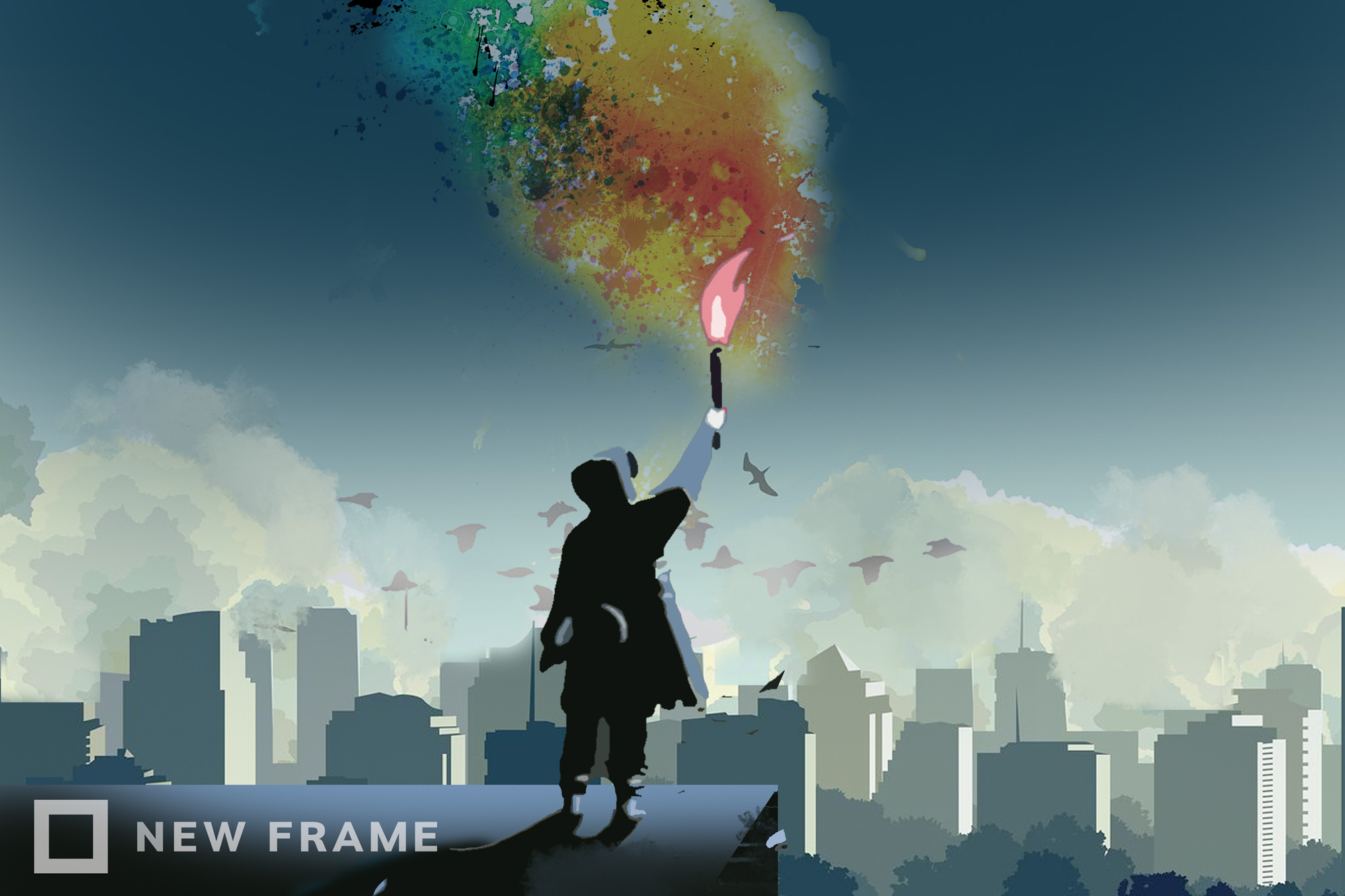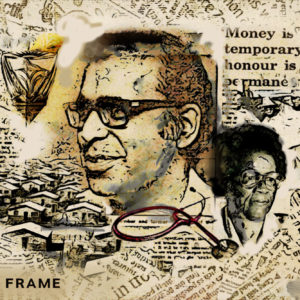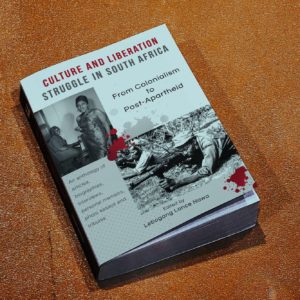From the Archive | The necessity of revolution in the 21st century
In 2012, as the illusion of stability crumbled in wake of the Arab Spring, the global financial meltdown and the Occupy movements, the question arose: what does revolution look like now?
Author:
17 February 2022

This is a lightly edited excerpt from an article first published by Roar Magazine in 2012.
We are living through historic times. While the future may look bleak and uncertain, we are – in our own particular way – blessed to live through an era in which the very word “revolution” is no longer just the abstract obsession of some fringe romantics inside the old Left. We are living through a time in which the word capitalism no longer invokes hard work and ample reward, but the lack of work and opportunity for a growing number of people around the world. This is a time in which the very existence of revolutionary theory and practice is no longer considered just an academic or activist privilege, but a pressing global necessity and – increasingly – a factual reality on the ground.
We are living through a time in which the illusory sense of growth and progress that underpinned the cultural hegemony of neoliberalism – and its belief that representative democracy and the self-regulating market will bring freedom and prosperity to all – is dying a slow and painful death. The deceptive ideological mirror of the end of history has been shattered, and in come tumbling a whole new range of alternative futures. With the uprisings that started in the Arab world last year, history appears to have started anew. After a brief interlude that began with the end of the Cold War, the ongoing global financial crisis has radically shaken the foundations of the neoliberal world order. The endless struggle has recommenced, and in the process, the horizon of the possible is rapidly shifting. And the most incredible thing is that we’re watching all of it happen right in front of our very eyes.
Related article:
The other day I was speaking to a journalist who in his time covered the 1968 student uprising in Paris, and ran from revolution to coup d’état in Latin America during the 1970s and 1980s. He told me something that rang very true and that still seems very applicable to our predicament today: he said that in times of crisis, as coalitions of convenience fall apart and the illusion of systemic stability is disturbed from the inside out, the interests of different social groups and political actors suddenly appear just as they are. The naked essence of the system is revealed for what it always already was. If the current crisis has been good for anything, it is that it has brutally uprooted the post-political consensus of the centrist parties and redrawn the battle lines along the class divide.
The crisis, in short, has brought class struggle back to the fore. Suddenly, there is no longer such a thing as a safe and secure middle class. The politics of austerity have revealed the real cleavages in our globalised world economy. The battle lines are drawn: this is a struggle between the 1% – politicians, financial capitalists, chief executives and military elites – and the rest of the world population. For the past 30 years, the 1% have been waging a silent war upon the 99%, but it took a financial crisis of historic proportions to bring this reality to light. So yes, even though we have chosen to struggle strictly with non-violent means, we find ourselves in a state of war nonetheless. And as Leo Tolstoy so beautifully depicted in his War & Peace, those participating in the battle often find themselves in a “fog of war” – a period of protracted uncertainty about the strength of the opposing force, about one’s own strength and about the future of our world in general.
Reflections of a revolution
The main thing we have tried to do at Roar Magazine over the past year – and the main thing I will try to do in this intervention as well – is to alleviate some of this uncertainty through what one of our contributors has called “the art of information activism”. One of our key objectives at the magazine has been to provide some perspective. To take a step back and understand the events of the past year in their spatial and temporal context – that is to say, to always highlight the global and historical dimension to what is happening today. In the process, we hope to not only amplify the voice of our generation, but also to distil some sense and order from the clamorous cacophony of our rapidly changing world.
Rosa Luxemburg once wrote that “the most revolutionary thing one can do is always to proclaim loudly what is happening”. But as we face an overload of informational stimuli, it seems at least equally important to try and connect the dots between all the seemingly disconnected events that present themselves to our consciousness on a daily basis. What connects the global financial crisis of 2008-2009 with the dramatic decision of Mohamed Bouazizi to set himself on fire in Tunisia in late 2010, thereby sparking the Arab Spring? What connects the spectacularly televised Egyptian revolution of 2011 to the real democracy movements in Spain and Greece? How is the fate of millions of smallholder farmers in Africa related to the predatory speculation of a small group of investment bankers on Wall Street? And what can the Occupy movement do to change any of this?
Related article:
These are some of the questions I will try to touch upon in this intervention. Throughout my presentation, as I connect the dots between the crisis of global capitalism, the Arab Spring and the movements in Europe, North America and elsewhere, I will try to address one overarching theme: the meaning of the word “revolution” in the 21st century. What does it mean to be a revolutionary today? Did the events that took place in Egypt last year really constitute a “revolution”? When Puerta del Sol was occupied almost a year ago, and people carried around banners reading “nobody expects the Spanish revolution”, were they naively expressing a millennial sense of romanticism for times past, or is there an important moment of truth to be found in the revolutionary longing of our generation today?
Whatever the answers may be, one thing that has become abundantly clear over the course of the past year, is that the idea of revolution cannot be condensed into a singular event – like the overthrow of a tyrant or the seizure of state power. Revolutions are processes by their very nature. They take place over a time-span of years – if not decades – and arise out of a complex web of historical currents and global interconnections. They have external manifestations – in the streets and squares – and internal motivations, in the hearts and minds of all those individual people constituting the masses. In other words, a real revolution does not occur – it unfolds. It unfolds both mentally and materially; both individually and collectively.


